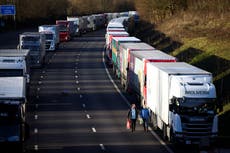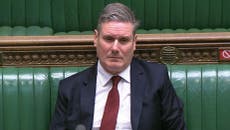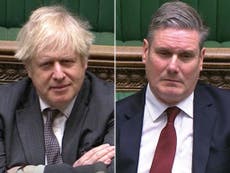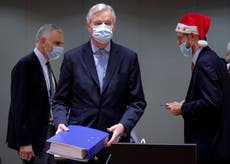We can reduce sorrow over Brexit by building new connections with Europe
Brexit marks the end of an era, but it doesn’t have to be the end of the UK’s European story

Your support helps us to tell the story
From reproductive rights to climate change to Big Tech, The Independent is on the ground when the story is developing. Whether it's investigating the financials of Elon Musk's pro-Trump PAC or producing our latest documentary, 'The A Word', which shines a light on the American women fighting for reproductive rights, we know how important it is to parse out the facts from the messaging.
At such a critical moment in US history, we need reporters on the ground. Your donation allows us to keep sending journalists to speak to both sides of the story.
The Independent is trusted by Americans across the entire political spectrum. And unlike many other quality news outlets, we choose not to lock Americans out of our reporting and analysis with paywalls. We believe quality journalism should be available to everyone, paid for by those who can afford it.
Your support makes all the difference.Once Brexit is fully delivered, there’s no guarantee people will see the same facts or blame the same causes, since we’re now inhabiting different realities and living different stories.
Committed Leavers and Remainers still vent in their own echo chambers, sharing information from preferred media outlets and leaders. Polarisation has caused the "exhausted majority" to turn away in despair and boredom, to fight other battles.
This next phase of public opinion is thus unpredictable. But let’s imagine the majority of British people are affected by Brexit-related damage, as distinguished from the effects of Covid-19, and grow disillusioned with the post-Brexit journey.
Will they blame Conservatives, high-profile Brexiteers, the EU, Remainers or themselves? Will they care enough to act? And who or what will the population turn to? Among the options, it’s highly possible Britons could one day turn back towards the European fold. Our challenge therefore is to keep open the channels of cooperation to prevent UK drift, grow our European identity and lay the trail to a closer relationship.
This goal is the focus of our new initiative “Keeping Channels Open – Beyond Brexit”, supported by the German liberal-leaning Friedrich Naumann Foundation as a series of roundtables with senior figures from the realms of politics, academia and civil society.
This network spanning the UK, US and Europe is debating the positive initiatives we can control, rather than lamenting the losses we can’t. We are together exploring ways for the UK to stay connected at the level of governments and political parties; regions and cities; trade and industry; academia and think tanks; education, culture and civil society.
The consensus is that the UK will have to work twice as hard to maintain relationships in Europe, painstakingly built up over four decades and already disappearing – along with maintaining our influence, cooperation and information exchange. Diplomats say the UK government will need to "pay to play" and "add value" if it wants to remain relevant on the world stage.
This means taking stronger positions, investing in diplomatic fora and soft power levers and doubling down on its roles in Nato, the G7, the Council of Europe and other groups. Enhancing the diplomatic format of France, Germany and UK, sometimes-labelled E3, could also help anchor Britain in EU foreign policy.
Further afield, the US president-elect Joe Biden and his officials await the priorities of "Global Britain" – seen as a hollow slogan in the light of Brexit that has led to UK navel-gazing rather than looking ahead.
Businesses will still need to stay up-to-date with EU rules in order to export to EU. A broader range of connections will also be needed to make a success of our economy and expand our horizons: industrial and engineering apprenticeships, crafts and specialist exchanges, young leaders’ programmes, creative collaborations and educational initiatives.
Inspiration can be drawn from Franco-German reconciliation after the Second World War, which brought together the two countries after a devastating conflict. Links were forged at every level; political connectivity through a common parliamentary assembly and regular summits, military cooperation including a joint brigade; university and youth exchanges for millions of young people, as well as joint cultural projects and the twinning of towns, regions and schools.
These connections enriched lives, minimised tensions, and helped stabilise Europe. The UK must make a similar commitment.
As access to EU projects dwindles, British cities and regions could bypass national disengagement and deepen participation in networks such as Eurocities and Intercultural Cities. Bristol, Manchester, City of London and even Leave-voting Cornwall are exploring their options through offices in Brussels, alongside those of Scotland, Wales and Northern Ireland.
Pro-European campaign groups with links across the continent could drive local and national connections. The next generation may also start banging the drum, demanding more connectivity on issues that transcend borders, like the environment, inequality, technology, jobs and travel.
Brexit is the end of an era, but it doesn’t have to mean the end of the UK’s European story. Things may change again, after a period of introspection and internal change.
The network we are building through "Keeping Channels Open" is preparing for this possibility. We need to take opportunities now to stay close to Europe, in readiness for when politics turns and opinions change, and a reoriented Britain chooses, consciously and deliberately, to recommit to a common European future.
Sandra Khadhouri is director of the Keeping Channels Open






Join our commenting forum
Join thought-provoking conversations, follow other Independent readers and see their replies
Comments